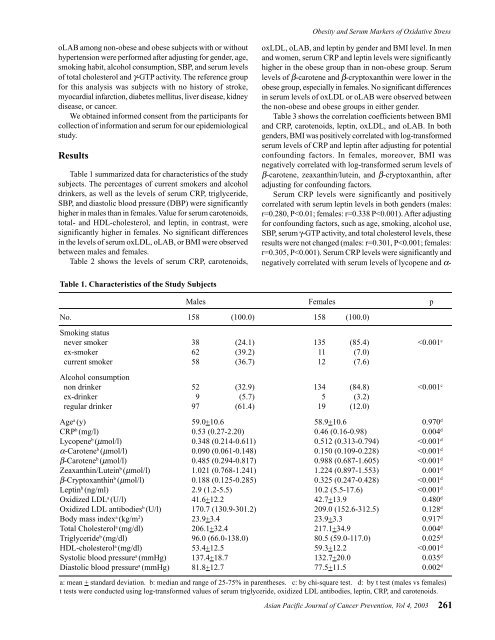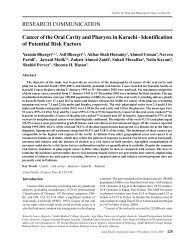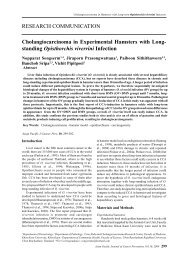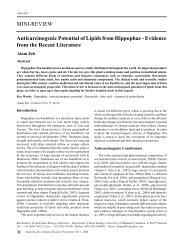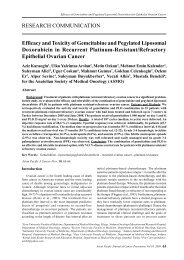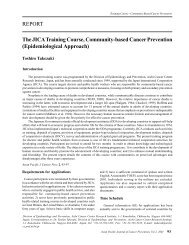Koji Suzuki.pdf
Koji Suzuki.pdf
Koji Suzuki.pdf
Create successful ePaper yourself
Turn your PDF publications into a flip-book with our unique Google optimized e-Paper software.
Obesity and Serum Markers of Oxidative Stress<br />
oLAB among non-obese and obese subjects with or without<br />
hypertension were performed after adjusting for gender, age,<br />
smoking habit, alcohol consumption, SBP, and serum levels<br />
of total cholesterol and γ-GTP activity. The reference group<br />
for this analysis was subjects with no history of stroke,<br />
myocardial infarction, diabetes mellitus, liver disease, kidney<br />
disease, or cancer.<br />
We obtained informed consent from the participants for<br />
collection of information and serum for our epidemiological<br />
study.<br />
Results<br />
Table 1 summarized data for characteristics of the study<br />
subjects. The percentages of current smokers and alcohol<br />
drinkers, as well as the levels of serum CRP, triglyceride,<br />
SBP, and diastolic blood pressure (DBP) were significantly<br />
higher in males than in females. Value for serum carotenoids,<br />
total- and HDL-cholesterol, and leptin, in contrast, were<br />
significantly higher in females. No significant differences<br />
in the levels of serum oxLDL, oLAB, or BMI were observed<br />
between males and females.<br />
Table 2 shows the levels of serum CRP, carotenoids,<br />
oxLDL, oLAB, and leptin by gender and BMI level. In men<br />
and women, serum CRP and leptin levels were significantly<br />
higher in the obese group than in non-obese group. Serum<br />
levels of β-carotene and β-cryptoxanthin were lower in the<br />
obese group, especially in females. No significant differences<br />
in serum levels of oxLDL or oLAB were observed between<br />
the non-obese and obese groups in either gender.<br />
Table 3 shows the correlation coefficients between BMI<br />
and CRP, carotenoids, leptin, oxLDL, and oLAB. In both<br />
genders, BMI was positively correlated with log-transformed<br />
serum levels of CRP and leptin after adjusting for potential<br />
confounding factors. In females, moreover, BMI was<br />
negatively correlated with log-transformed serum levels of<br />
β-carotene, zeaxanthin/lutein, and β-cryptoxanthin, after<br />
adjusting for confounding factors.<br />
Serum CRP levels were significantly and positively<br />
correlated with serum leptin levels in both genders (males:<br />
r=0.280, P


